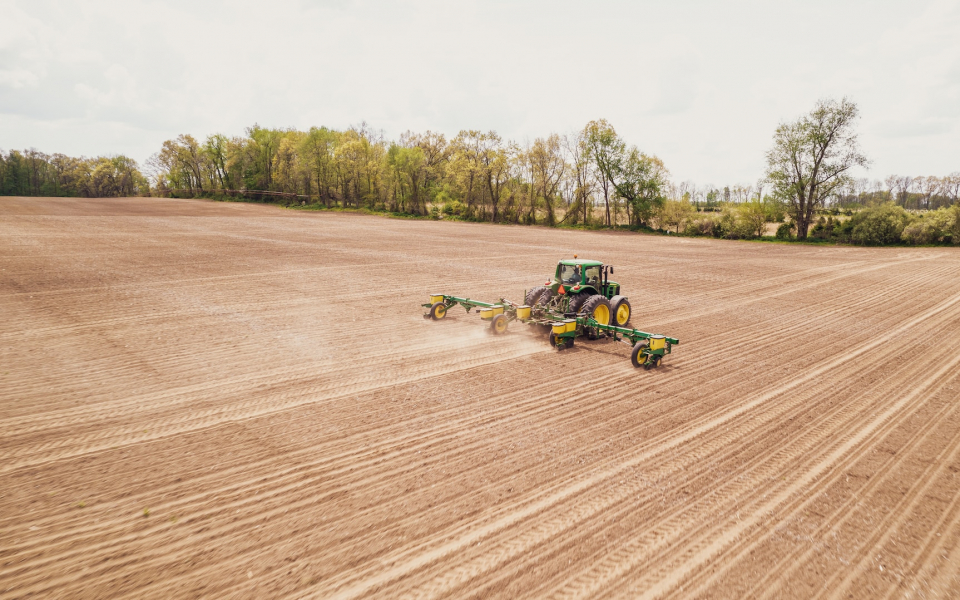As Deere & Company
Nothing wrong with the numbers: at $8.26 its earnings per share easily beat market forecasts of $7.49, while full-year net income of $10.2 billion beat the company's own top line forecast of between $9.75-$10 billion.
The problem was with the company's outlook for 2024. For full-year 2024 Deere forecast net income of $7.75 billion to $8.25 billion. Something of a step-down from $10.2 billion.
John May, chairman and CEO, said: "While our end markets will fluctuate, we remain focused on disciplined execution and strategically investing in solutions that drive customer value."
This suggested the company expects a tougher year ahead, based on economic forecasts that see stifled growth along with slowing sales.
Cyclicals Vs. Non-Cyclicals
Deere's share price drop following the results was not wholly unexpected. The shares have been on a broadly lower path since the summer - down nearly 20% at $361 since a July peak of $450.
The company is among a group of stocks investors call "cyclicals" - meaning the shares are particularly sensitive to the macroeconomic outlook.
Furthermore, within these cyclical stocks, Deere & Company and its peers, such as Caterpillar
Investors pre-empt the likely impact of economic slowdown on these companies' profits, sometimes months in advance, and switch them out of their portfolios in favor of non-cyclical stocks - utilities and non-discretionary retail for example.
Thus, shares in Caterpillar and AGCO have recently followed a similar path to those of Deere, with CAT down 15% and AGCO down nearly 18% since late July.
Cyclicals such as airlines have also seen large losses since the summer, with Delta Airlines
What's Spooking Investors About Growth?
While there's yet to emerge any definitive evidence of an economic downturn, analysts are pointing to recent surveys such as October's manufacturing purchasing managers index, which showed employment levels dropping, work order backlogs shrinking and subdued demand all forcing business confidence to its lowest point in 2023.
"The tone of the data, overall, likely will be consistent with recent market movements, signalling slow growth, depressed sentiment and, perhaps, a softening in the labor market," said Ian Shepherson, senior US economist at Pantheon Macroeconomics.
Of most concern to industrial cyclicals, is a slowdown in capital expenditures (capex), should end users put off purchases of new plant and machinery until the economy picks up.
Government Expenditures
Some stocks in the sector could remain reasonably well-supported into 2024. Lockheed Martin
Shares in both have jumped since the beginning of the Israel/Hamas conflict, while much of the US government's defense spending is on US companies. The biggest threat here is from budget controls.
Outlook For 2024
Thus, the outlook for Deere and its closest rivals in 2024 will depend largely on how the economy develops in the coming months. As we've seen, a good set of market-beating results is not enough to win the support of investors if the outlook is clouded. Markets hate uncertainty.
For airline stocks, consumer spending data will be crucial. Consumer activity downturns usually lag economic slowdowns until labor markets begin to weaken, so spring and summer bookings data will be key indicators.
But given share price activity already evidenced, it could be time for a portfolio switch to stocks less exposed to the economic outlook.










